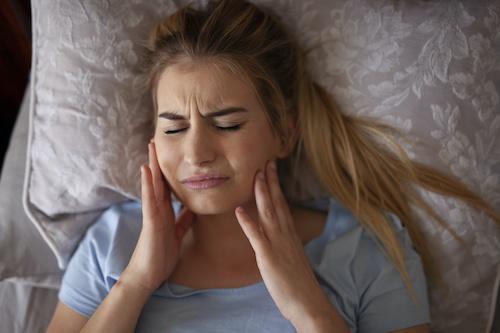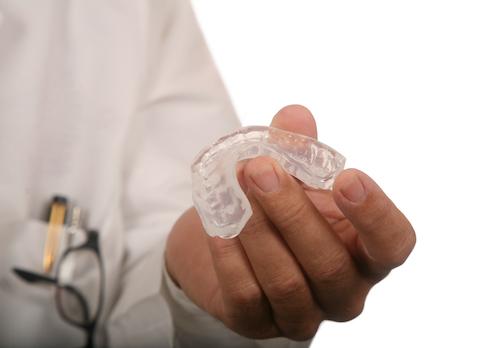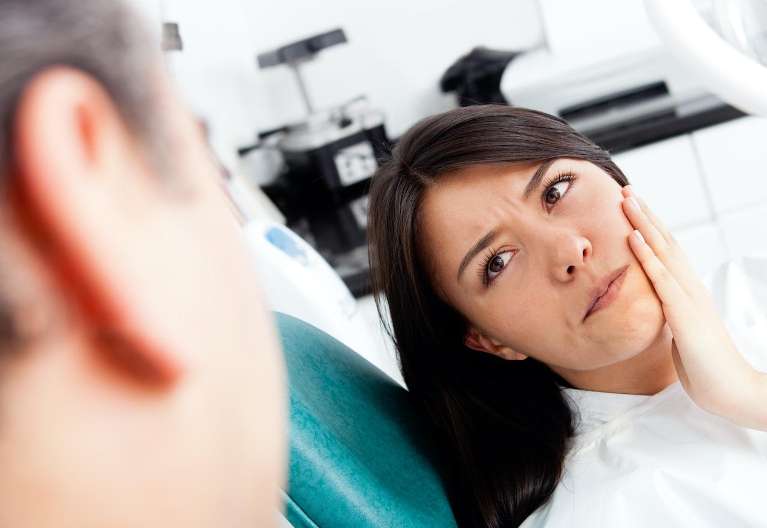TMJ & Bruxism Treatment in Watkinsville, GA
 You have probably heard the term ‘TMJ’ and know it relates to your jaw joints, also called temporomandibular joints. The conditions that develop when the jaw joints and muscles don’t function properly are called TMD, short for temporomandibular joint disorders.
You have probably heard the term ‘TMJ’ and know it relates to your jaw joints, also called temporomandibular joints. The conditions that develop when the jaw joints and muscles don’t function properly are called TMD, short for temporomandibular joint disorders.
Benefits of Non-Surgical TMJ Treatment
TMJ pain can be debilitating for some people, and there are many benefits to seeking treatment with your Watkinsville, GA, dentist.
- Enjoy food more
- Avoid TMJ-related headaches
- Protect teeth from grinding
- Avoid TMJ-related conditions like migraines and neck pain
- Take less medication
- Protect your teeth from wear
Often, a custom nightguard worn during sleep is enough to give the jaw joint a chance to rest and minimize TMD symptoms. Please call Athens Oconee Dentistry to schedule an appointment to see how we can help relieve your pain and get your life back.
What Causes TMJ Disorder?
Because the TMJ is a complex joint, it isn’t always possible to pinpoint the specific cause of the disorder. However, contributing factors may increase the likelihood of developing TMD.
- Injury to the jaw
- Arthritis
- Chronic teeth grinding and clenching
- Being female
Symptoms of TMJ Disorder
If you experience any of the following symptoms, you should consider speaking to your doctor or dentist about TMD:
- Painful popping and clicking when opening or closing your mouth
- Jaw pain or stiffness
- Pain when chewing
- Limited movement of the jaw
- Jaw locked open or closed
- Headaches and migraines
- Tinnitus (ringing in the ears)
- A change in your dental bite
You should also know that hearing clicking or popping sounds in the jaw joint is normal. They only become problematic when accompanied by pain. And for many people, the signs and symptoms of TMJ problems go away on their own with no need for treatment.
How Your Dentist Diagnoses TMD
There’s no standard test to diagnose TMD. If you experience mouth, face, or jaw pain, Our dentist will ask about your symptoms and have you open and close your mouth to check your jaw’s range of movement.
In some cases, they might recommend an x-ray or CT scan.
Non-Surgical TMD Treatment
 If you experience TMJ pain, there are some simple behavioral changes you can make that may alleviate the symptoms, including:
If you experience TMJ pain, there are some simple behavioral changes you can make that may alleviate the symptoms, including:
- Wear a custom nightguard during sleep to reduce the effects of teeth grinding on the jaw
- Eat soft foods that don’t require a lot of chewing
- Don’t chew gum or bite your nails
- Take anti-inflammatory medications like ibuprofen
If these steps don’t provide relief, your dentist or doctor may recommend one or more of the following:
- BOTOX® injections
- Meditation, yoga, or other relaxation techniques
- Acupuncture
- Muscle relaxing medications
- Physical therapy to expand the TMJs range of movement
The Relationship between TMD and Bruxism
TMJ disorders and bruxism (chronic teeth grinding or clenching) are often related. You may start grinding your teeth because of TMD; conversely, you may develop TMD due to teeth grinding.
During your diagnosis, our TMJ dentist will see evidence of teeth grinding and bruxism, including unusual wear on your teeth or tooth sensitivity. Experiencing these symptoms along with jaw pain or clicking or popping sounds are often due to problems related to the TMJ.
Call Us for Help with TMJ Pain and Headaches
You don't have to endure the painful and disruptive symptoms of TMJ pain. Please call your TMJ dentist at Athens Oconee Dentistry to see how we can help you.



